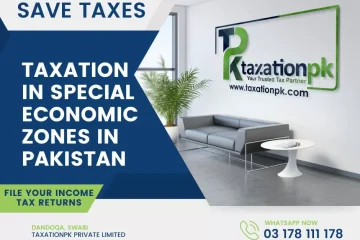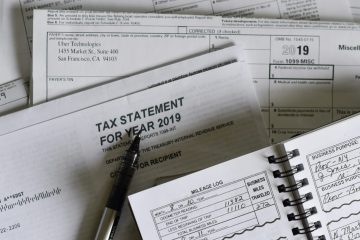Pakistan’s tax system, primarily governed by the Income Tax Ordinance, 2001 (ITO 2001), incorporates various tax credits and exemptions designed to achieve specific economic and social objectives. These measures serve as powerful tools to incentivize investment in targeted industries, encourage specific activities, provide relief to certain individuals or entities, and streamline tax collection processes.
Sector-Specific Tax Incentives for Economic Growth
The Pakistani government utilizes tax exemptions and credits to stimulate growth and attract investment in key sectors. Some notable examples under the ITO 2001 include:
-
Power Generation:
- Electricity Projects: Profits generated from electric power generation projects set up in Pakistan with government approval before June 30, 2021, were exempt from tax until June 30, 2023.
- Transmission Lines: New transmission line projects established on or after July 1, 2015, benefit from a ten-year income tax exemption, subject to fulfilling specific conditions and meeting deadlines.
- National Power Parks: The National Power Parks Management Company and its demerged entities enjoy tax exemption on profits and gains derived from electricity sales.
-
Special Economic Zones (SEZs): To encourage industrial development and exports, enterprises operating within designated SEZs across Pakistan are granted a ten-year tax exemption on their income, commencing from the start of commercial operations, provided certain conditions are met.
-
Renewable and Efficient Energy:
- Bio-energy: Profits from qualifying bagasse or biomass-based cogeneration power projects are exempt from income tax. Additionally, dividends paid out from these projects benefit from a reduced withholding tax rate.
- Deep Conversion Refineries: Significant incentives exist for the refinery sector. New deep conversion refineries approved before December 31, 2021, can avail a 20-year tax exemption. Existing refineries undertaking upgrades to meet specific conditions can receive a 10-year exemption.
-
Other Targeted Incentives:
- Cinema Industry: Income derived from cinema operations benefits from a five-year tax exemption starting from the commencement of operations, aiming to support the local film and entertainment industry.
- Venture Capital: To foster innovation and entrepreneurship, profits and gains earned by venture capital companies and funds were exempt from tax until June 30, 2025.
- Charitable Organizations: Certain prescribed and enlisted charitable organizations can qualify for tax exemption, subject to meeting specific regulatory requirements and conditions.
Exemptions for Specific Individuals and Entities
Beyond industry-specific incentives, the ITO 2001 provides tax exemptions for certain classes of individuals and entities based on their status, role, or international agreements:
-
Diplomatic and International Personnel:
- Diplomats and UN Officials: Income earned by individuals entitled to privileges under the Diplomatic and Consular Privileges Act, 1972, or the United Nations (Privileges and Immunities) Act, 1948, is exempt to the extent provided by these Acts.
- Pensions from International Bodies: Pensions received by Pakistani citizens formerly employed by the UN or its specialized agencies (including the International Court of Justice) are exempt, provided their salary during employment was also tax-exempt in Pakistan.
-
Foreign Government Employees: Salaries earned by foreign government employees working in Pakistan are exempt if they are not Pakistani citizens, their services mirror those performed by Pakistani government employees abroad, and their home country grants reciprocal tax exemptions to Pakistani government employees working there.
-
International Agreements and Aid:
- Tax Treaties: Income originating in Pakistan is exempt if a tax treaty between Pakistan and another country prevents Pakistan from taxing that specific income.
- Aid Agreements: Salaries of non-Pakistani individuals may be exempt under specific clauses within Aid Agreements between the Pakistani government and foreign governments or international organizations.
- Official Development Assistance: In certain circumstances, the federal government can exempt income related to official development loans and grants via notification in the official gazette.
-
Presidential Honours and Awards: Allowances linked to honours, awards, or medals conferred by the President of Pakistan, as well as monetary awards granted by the President, are exempt from income tax.
-
Judges of High Courts and the Supreme Court: Judges receive specific tax benefits outlined in Clause 55 of Part-I of the Second Schedule of the ITO 2001. These include:
- Rent-Free Residence: Fully tax-exempt accommodation provided by the government (either rented or owned by the judge with rent paid by the government) for their term of service.
- Tax-Free Perquisites: This covers transport vehicles, Superior Judicial Allowance, Transfer Allowance (for High Court judges), 1000 free local phone calls monthly, 1000 free electricity units monthly, and 200 litres of petrol monthly. These benefits are exclusive to judges and subject to specific conditions.
Tax Credits for Donations and Foreign Tax Paid
-
Charitable Donations Credit: Companies can claim a tax credit for donations made to specific entities. The credit amount is equivalent to 20% of the company’s taxable income for the year. Eligible recipients include:
- Boards of education or universities in Pakistan established under federal or provincial law.
- Educational institutions, hospitals, or relief funds established or run in Pakistan by federal, provincial, or local government.
- Approved non-profit organizations u/s 61. (Note: This credit regime replaced a previous system where donations to certain institutions were allowed as a direct deduction from income, potentially reducing the overall tax benefit for donors).
-
Tax Credit for Contribution to Approved Pension Fund u/s 63
Foreign Tax Credit: Resident taxpayers who earn foreign-source income and pay foreign income tax on it within two years of earning it can claim a tax credit in Pakistan. The credit is limited to the lower of the actual foreign income tax paid or the Pakistan tax payable on that foreign income. Importantly, any excess foreign tax paid is not refundable in Pakistan.
-
Calculating Your Tax Credit:
The amount of tax credit you receive for charitable donations depends on several factors:
- Total Donations: This includes the sum of all your monetary donations and the fair market value of any property you donated during the tax year.
- Taxable Income: This is your total income minus allowable deductions before considering charitable donations.
- Tax Rate: This is the percentage of your taxable income you owe in taxes based on your income bracket.
The Formula:
The following formula determines your tax credit amount:
(A / B) x C
- A: Total tax assessed for the year before tax credits.
- B: Your taxable income for the year.
- C: The lesser of:
- Total Donations: The combined value of all your charitable contributions in the tax year.
- Donation Limit:
- Individuals and associations: 30% of taxable income.
- Companies: 20% of taxable income.
Important Note:
- There’s a further limitation if donating to an “associate” (related entity). In such cases, the donation limit is reduced to 15% for individuals and associations, and 10% for companies.
- Cash donations must be made through a crossed cheque drawn on a bank to qualify for the tax credit.
Tax Exemption Certificates – Withholding Tax (WHT)
A crucial mechanism within the Pakistani tax system, particularly relevant for businesses, is the Tax Exemption Certificate. Issued by the Federal Board of Revenue (FBR), these certificates allow specific taxpayers (like exporters or others qualifying for reduced rates) to receive payments either without any withholding tax (WHT) deduction or at a reduced rate.
-
Understanding the Purpose: Businesses often act as withholding agents, required to deduct tax at source when making payments to suppliers or vendors. An exemption certificate essentially instructs the withholding agent not to deduct tax, or to deduct at a lower rate, on transactions with the certificate holder.
-
Benefits of Holding an Exemption Certificate:
- For the Customer/Recipient: The primary benefit is receiving payments without the immediate tax deduction, improving their cash flow.
- For the Supplier/Certificate Holder: Possessing a valid certificate can be a significant competitive advantage, making their goods or services financially more attractive to buyers concerned about upfront tax deductions. It signals good tax standing.
- Improved Cash Flow Management (Supplier): Often, qualifying for an exemption certificate requires demonstrating consistent tax compliance, including the regular payment of advance tax in quarterly installments. While a requirement, this practice helps the business manage its tax outflow more smoothly throughout the year, avoiding a large lump-sum payment.
-
Qualification Criteria: Generally, businesses need a strong track record of timely tax payments over recent years and demonstrate ongoing compliance, often evidenced by consistent advance tax payments.
How to Verify Tax Exemption Certificates?
While exemption certificates offer benefits, their incorrect handling poses significant risks, especially for the withholding agent (the entity making the payment). Granting an exemption based on an invalid or expired certificate can lead to serious financial and compliance issues.
-
Why Verification is Non-Negotiable:
- Monetary Losses: If a withholding agent fails to deduct tax based on an invalid certificate, the FBR will hold the agent liable for the unwithheld amount.
- Penalties and Interest: Beyond the principal tax amount, the agent may face substantial penalties and interest charges.
- Compliance Risks: Incorrect application of exemptions can trigger FBR audits, damage the business’s reputation, and lead to disputes.
-
Common Pitfalls: Beyond the “Valid Until” Date: A frequent error is relying solely on the expiry date printed on the certificate. It is equally crucial to check the “issue date” or “valid from” date. A transaction occurring before the certificate was issued, even if it falls within the overall validity period ending later, does not qualify for the exemption. The transaction date must fall on or after the issue date AND on or before the expiry date.
-
How to Verify (Using FBR Portal): The FBR provides an online facility for verification:
- Access FBR e-Services: Go to the official FBR online portal.
- Find Verification Option: Navigate to the “Exemption Certificate Verification” section (often under taxpayer services or verification menus).
- Enter Certificate Details: Input the unique “Bar Code Reference No.” found on the certificate.
- Submit and Check: Enter the required captcha code and click “Verify.” The system will display the certificate’s status (valid, expired, invalid) and the specific validity period.
- Record the Result: Save or print the verification result as evidence of due diligence.
-
Best Practices for Handling Certificates:
- Verify Every Time: Never assume a certificate is valid. Always use the FBR portal for verification.
- Check Both Dates: Meticulously confirm the transaction date falls within the entire active period (Issue Date ≤ Transaction Date ≤ Expiry Date).
- Maintain Records: Keep organized copies of certificates received and the corresponding FBR verification results.
- Recheck Periodically: For recurring transactions with the same vendor, regularly re-verify the certificate’s status, as they are issued for specific, limited periods.
-
Technology & Start-ups:
- IT Exports: While the previous 100% tax credit regime for exporting software, IT services, and IT-enabled services has been withdrawn, a reduced WHT rate of 0.25% on export proceeds is applicable for tax years 2024 to 2026 for persons registered with the PSEB.
Concessions for Small Companies
To encourage smaller businesses, a reduced income tax rate of 20% applies to “Small Companies.” A company qualifies as small if it meets all the following criteria:
- Registered on or after July 1, 2005, under the Companies Act, 2017.
- Paid-up capital plus undistributed reserves do not exceed PKR 50 million.
- Employs no more than 250 people at any time during the year.
- Annual turnover does not exceed PKR 250 million.
- Is not formed by splitting up or reconstituting a pre-existing business.
Compliance and Diligence are Key
Tax exemptions and credits are integral components of Pakistan’s fiscal policy, offering valuable opportunities for specific sectors, individuals, and compliant businesses. Tax exemption certificates, in particular, facilitate smoother transactions by managing withholding tax obligations. However, the benefits are contingent upon strict adherence to the rules. Diligent verification of exemption certificates, paying close attention to both issue and expiry dates via the official FBR portal, is not just a best practice but a critical compliance requirement. Understanding the nuances of these exemptions and ensuring meticulous verification safeguards businesses from significant financial penalties and maintains a healthy relationship with the tax authorities, ultimately fostering sustainable growth within a compliant framework. Given the complexity and potential changes in tax laws, consulting with tax professionals for specific situations remains highly advisable.





Please guide about wht exemptions of govt funded research hospitals. Under which clause it falls?